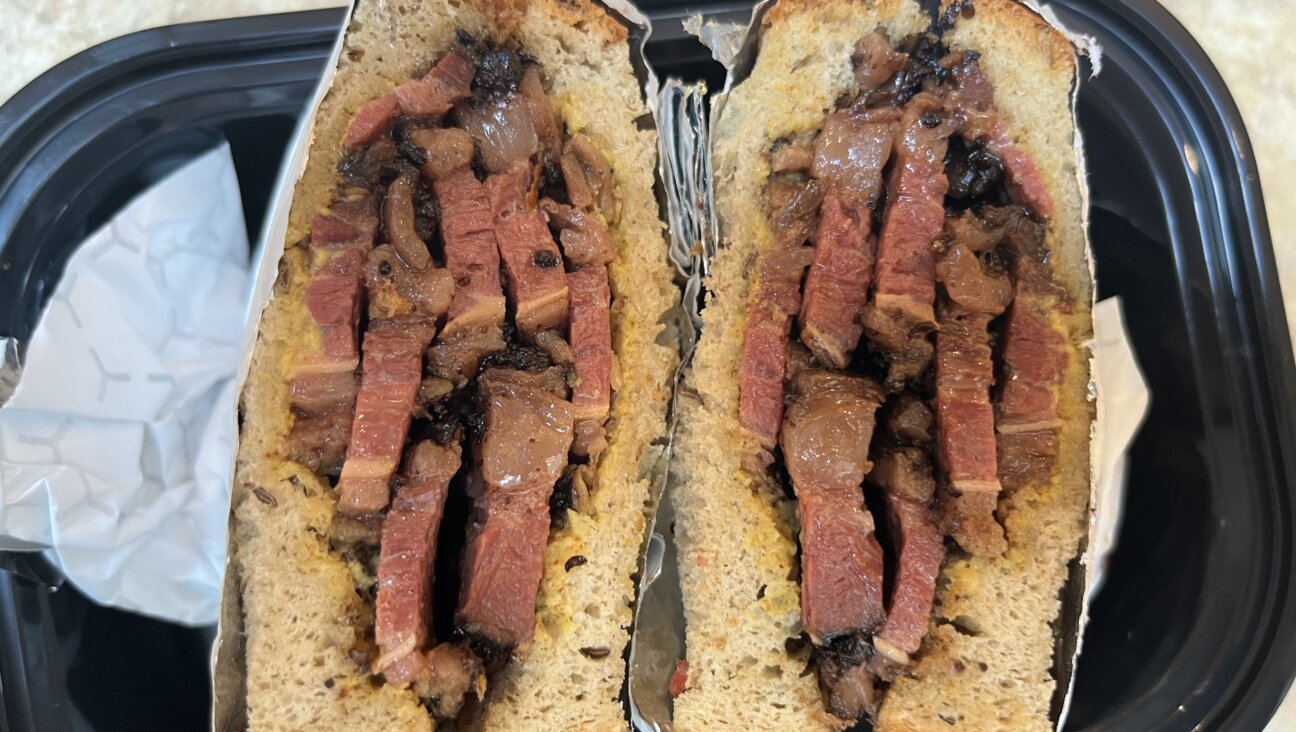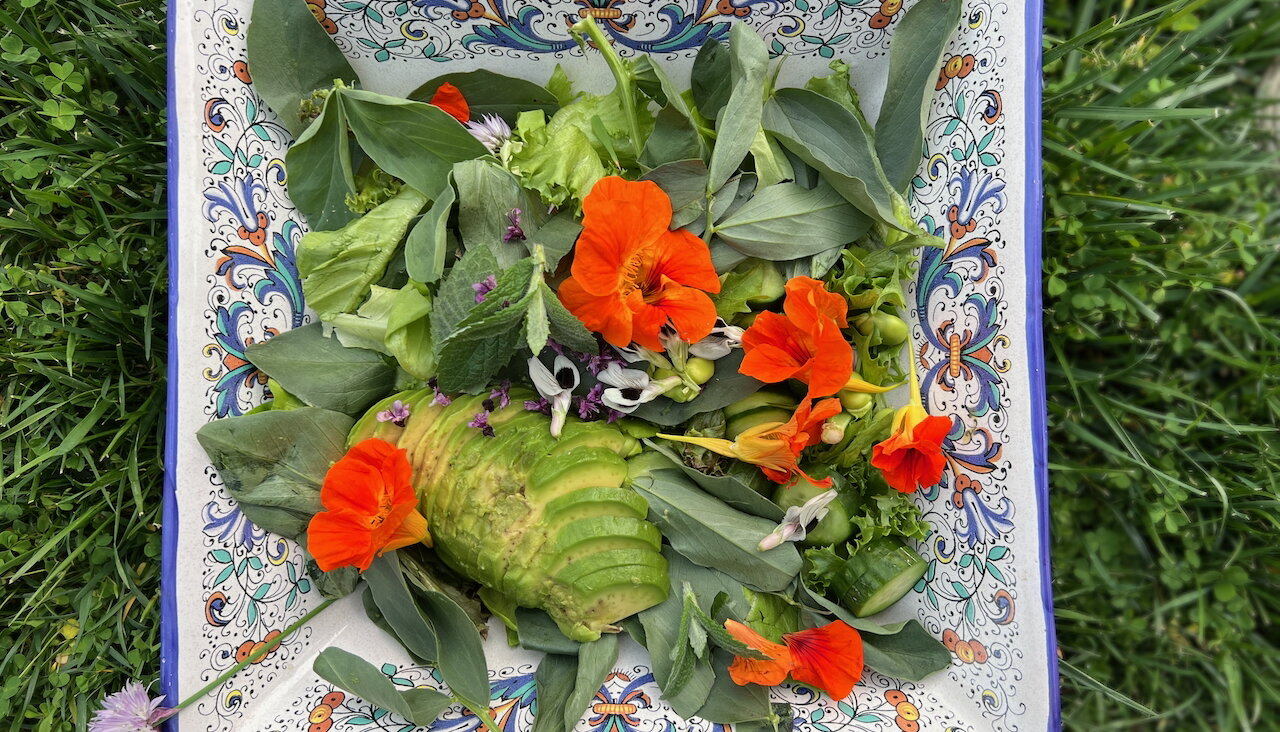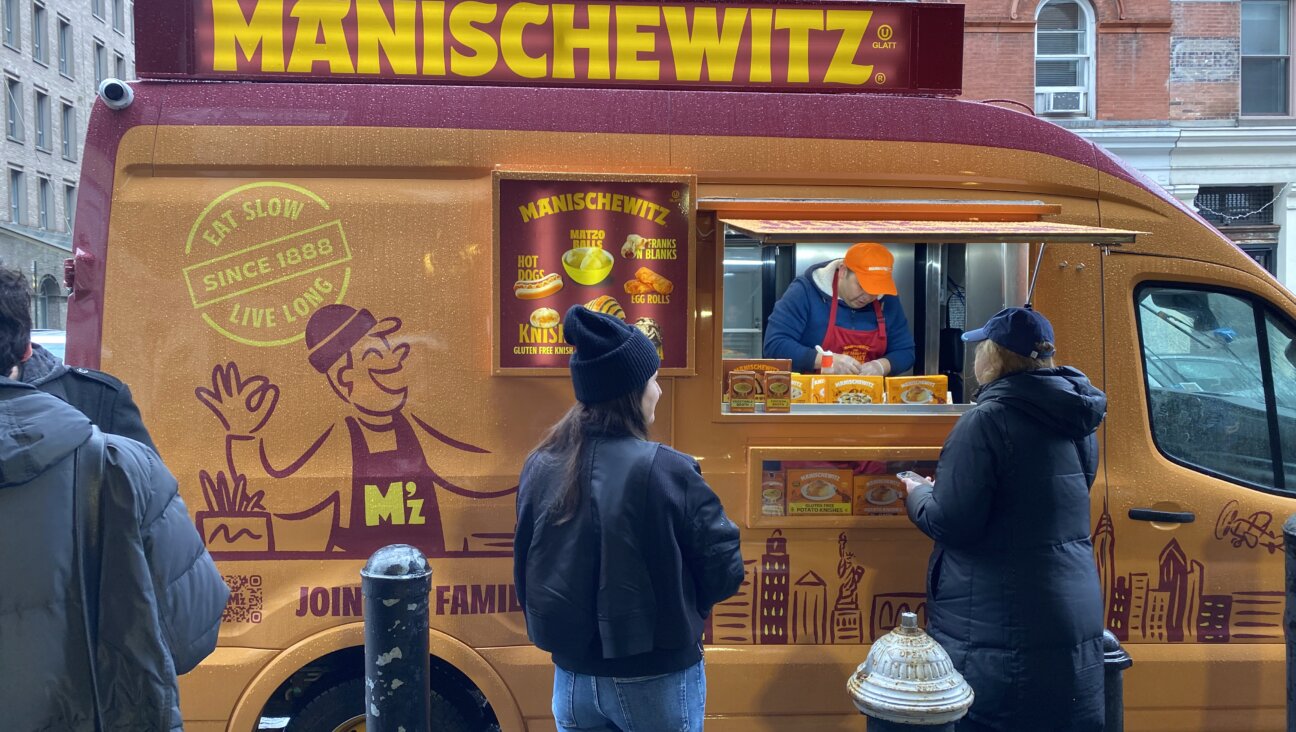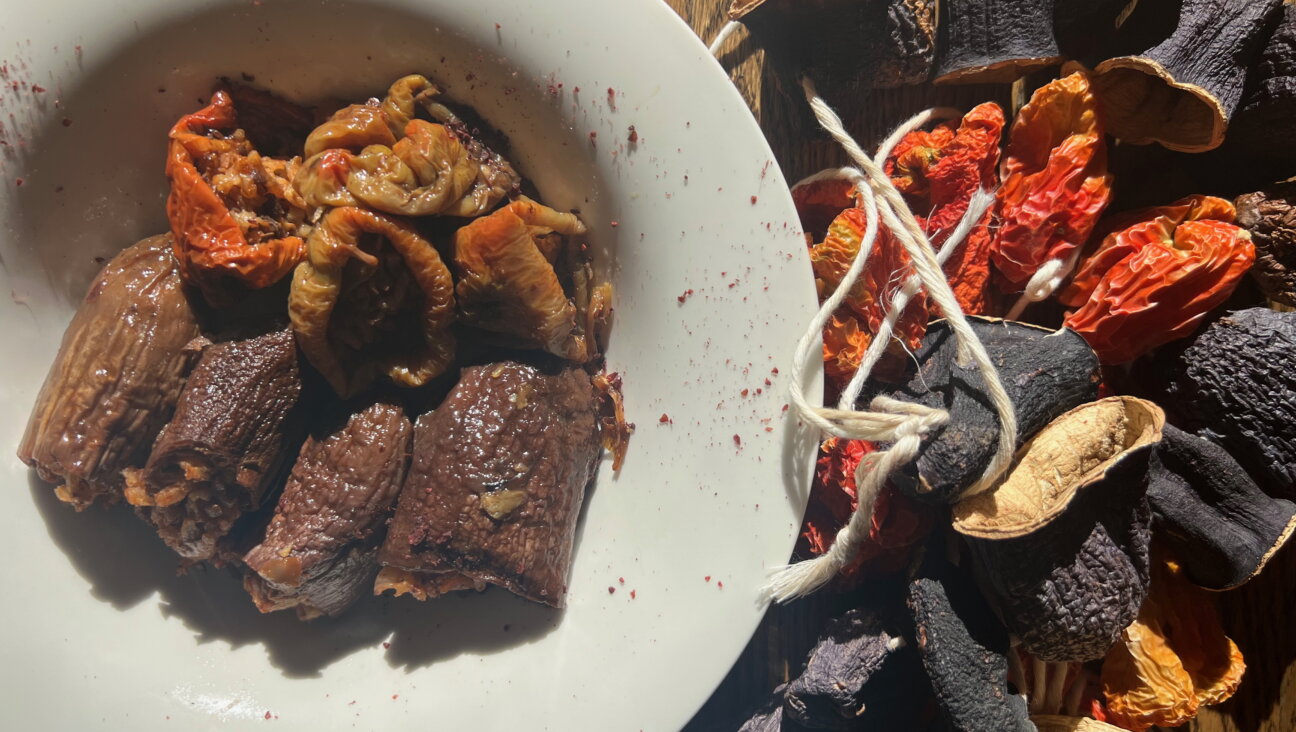How Bounce Castles Enhanced a Farmers Market

Fresh corn to market the Grand Opening of the Farmers Market at Temple Beth Shalom. Image by Courtesy of: Eytan Hammerman
One of the winners of the New York Ride mini grant from Hazon last year was Temple Beth Shalom in Mahopac, New York, a Conservative synagogue situated “where the country begins,” according to their local tourism slogan. The synagogue is led by Rabbi Eytan Hammerman, a 2010 Jewish Theological Seminary graduate and long-time friend of Hazon, from time of the organization’s founding. Rabbi Hammerman moved to Putnam County several years ago from White Plains, New York where he was the synagogue’s Rabbinic Intern. A highlight of his time in White Plains was his participation in the Tuv Haaretz CSA program which operates out of Temple Israel Center. He enjoyed the fresh fruits and vegetables that Tuv Haaretz provided each week. Upon moving to Putnam County (by bicycle, one Sunday morning – that’s another story), he surprised by the lack of CSAs or farmers markets “in the country.” He felt that the area was prime for a farmer’s market and wanted his synagogue to host the market. Coincidentally, a local landscaping business had the idea at the same time. After their first trial year, the synagogue and other business, together, opened the Mahopac Farmers Market, located each Sunday in the parking lot of the synagogue, at a central location in town.
Temple Beth Shalom initially approached Hazon and the mini-grant program to assist in funding the infrastructure needed to begin accepting EBT (“food stamps”) at the market. Unfortunately, the partners were reticent to introduce a government program into the market and the grant had to be repurposed. After much thought about the purpose and value of the farmer’s market itself, Rabbi Hammerman realized that one aspect of the farmer’s market that was lacking was the opportunity for customers to develop a relationship with the farmers themselves. It would be a positive experience for the residents of Mahopac to be able to get to know their local farmers and learn more about where their food comes from and how it is grown.
Rabbi Hammerman found that since many of the people coming to the farmers market were parents with multiple children, it was difficult for them to find the time to cultivate this sort of relationship with the farmers. Instead of lingering at the food stands, they were rushed because their children did not always want to be there for extended periods of time.
The solution for Rabbi Hammerman was to set up a bounce castle next to the farmer’s market so that parents could let their children play in the castle, giving the parents time to enjoy the market and utilize all that it has to offer. The bounce castle has been a huge success, turning the market from a rush-in rush-out grocery store-like experience, to a cause for lingering, Rabbi Hammerman explains. The relationship between the customers and the farmers has opened the door for the customers to learn more about their food and the people who make it. This is what Temple Beth Shalom was striving for when they established this farmer’s market in Mahopac – that it should be a place where members of the community become acquainted with the land around them.
For those of you who are already riding in the New York ride or would like to join, Temple Beth Shalom, the location of the Farmers Market will be the location of a rest stop along the way!
Click here to learn more about Hazon’s New York mini-grants.
Dahlia Herzog is a rising senior at Brandeis University studying Near Eastern and Judaic Studies. She is interning at Hazon this summer.
The Forward is free to read, but it isn’t free to produce

I hope you appreciated this article. Before you go, I’d like to ask you to please support the Forward.
Now more than ever, American Jews need independent news they can trust, with reporting driven by truth, not ideology. We serve you, not any ideological agenda.
At a time when other newsrooms are closing or cutting back, the Forward has removed its paywall and invested additional resources to report on the ground from Israel and around the U.S. on the impact of the war, rising antisemitism and polarized discourse.
This is a great time to support independent Jewish journalism you rely on. Make a gift today!
— Rachel Fishman Feddersen, Publisher and CEO
Support our mission to tell the Jewish story fully and fairly.
Most Popular
- 1

Fast Forward Ye debuts ‘Heil Hitler’ music video that includes a sample of a Hitler speech
- 2

Opinion It looks like Israel totally underestimated Trump
- 3

Culture Cardinals are Catholic, not Jewish — so why do they all wear yarmulkes?
- 4

Fast Forward Student suspended for ‘F— the Jews’ video defends himself on antisemitic podcast
In Case You Missed It
-

Culture How one Jewish woman fought the Nazis — and helped found a new Italian republic
-

Opinion It looks like Israel totally underestimated Trump
-

Fast Forward Betar ‘almost exclusively triggered’ former student’s detention, judge says
-

Fast Forward ‘Honey, he’s had enough of you’: Trump’s Middle East moves increasingly appear to sideline Israel
-
Shop the Forward Store
100% of profits support our journalism
Republish This Story
Please read before republishing
We’re happy to make this story available to republish for free, unless it originated with JTA, Haaretz or another publication (as indicated on the article) and as long as you follow our guidelines.
You must comply with the following:
- Credit the Forward
- Retain our pixel
- Preserve our canonical link in Google search
- Add a noindex tag in Google search
See our full guidelines for more information, and this guide for detail about canonical URLs.
To republish, copy the HTML by clicking on the yellow button to the right; it includes our tracking pixel, all paragraph styles and hyperlinks, the author byline and credit to the Forward. It does not include images; to avoid copyright violations, you must add them manually, following our guidelines. Please email us at [email protected], subject line “republish,” with any questions or to let us know what stories you’re picking up.















